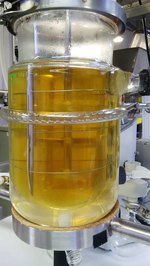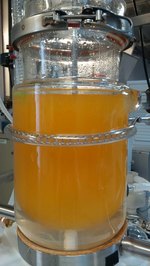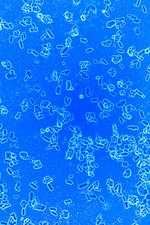In January 2019, the Finnish company Fazer announced that they would be building a plant to produce the sugar substitute xylitol. That is the context for our study on the crystallisation behaviour of solutions containing xylose or xylitol.

01.07.2020
From laboratory to industrial production
BMA studies crystallisation of sugar substitutes
The foundation stone for the new plant in Lahti was laid in close proximity to Fazer’s oat mill. At the moment, the oat hulls, a by-product from the mill, are used only to produce energy. In future, they will form the raw material basis for xylitol production using a method developed by Fazer – an innovative and unique process.
Several process steps are required to produce first xylose from the oat hulls and later in the process, xylitol. One step in the chain is the crystallisation of the two sugars from aqueous solutions, after these have passed through the preliminary process.
Study commissioned by Fazer
Since the oat hulls used are a new raw material source, the crystallisation solutions have a specific composition, whose impact on the crystallisation process had to be assessed. In early 2019, Fazer commissioned BMA to study the crystallisation behaviour of aqueous solutions containing xylose or xylitol.
Because of their different chemical structures, the two sugars also have different chemical and physical properties. The specific composition of the aqueous solutions results in specific solubilities, and characteristic crystal growth with different crystal shapes, sizes and yields. The properties had to be either verified or determined, for the design of the crystallisation processes and the apparatus. This required a particular approach in the studies.
Highly accurate data from BMA
Solubility data are a basic requirement for carrying out crystallisation tests. BMA has developed a method to obtain very accurate solubility data as a function of the purity, dry substance content and temperature of the technical solutions provided. Based on the results from tests using this method, it was possible to specify suitable parameters for the crystallisation process.
The crystallisation tests involved studying both a pan boiling process and cooling crystallisation, using a range of process parameters and determining their impact on crystal content, yield and technical feasibility. Relevant properties such as density, viscosity and boiling point increase were determined for the solutions and crystal suspensions subject to a range of factors such as temperature, purity, dry substance content and, where applicable, crystal content. These properties are necessary, for instance, for calculating heat transfer processes in apparatus design.
For an assessment of the crystals, the liquid phase (mother liquor) was separated from the crystal suspension (massecuite) in a centrifugal. The crystals thus obtained were then used in drying tests, to verify the dryer design and determine the drying parameters.
Impulses for technical implementation
The test findings were discussed in depth with Fazer and the process conditions for a technical implementation of the crystallisation processes were then specified. On this basis, we could offer Fazer modified apparatus from the BMA portfolio. In summer 2019, Fazer placed an order with BMA for the supply, assembly and commissioning of pan boiling and cooling crystallisation equipment for xylose and xylitol, and for the supply of a drying plant for the crystalline products.
Xylose
- Xylose is a monosaccharide. It is one of the building blocks of the hemicellulose xylan (a carbohydrate of higher molecular weight) and occurs in birch and beech wood, in straw, corncobs, and in oat hulls. Xylose is the raw material for xylitol production.
Xylitol
- Xylitol is a sugar alcohol, whose name derives from the Greek word for “wood”, xylon, and which occurs in small quantities in some types of fruit and vegetables. Fazer are planning to start production of xylitol from oat hulls in Finland in the near future. Because of its specific properties (xylitol is non-cariogenic and almost as sweet as sucrose, but has roughly 40 percent fewer calories), xylitol is primarily used as a sugar substitute in the food industry. It also plays an increasingly important role in pharmaceutics, cosmetics and green chemistry.







